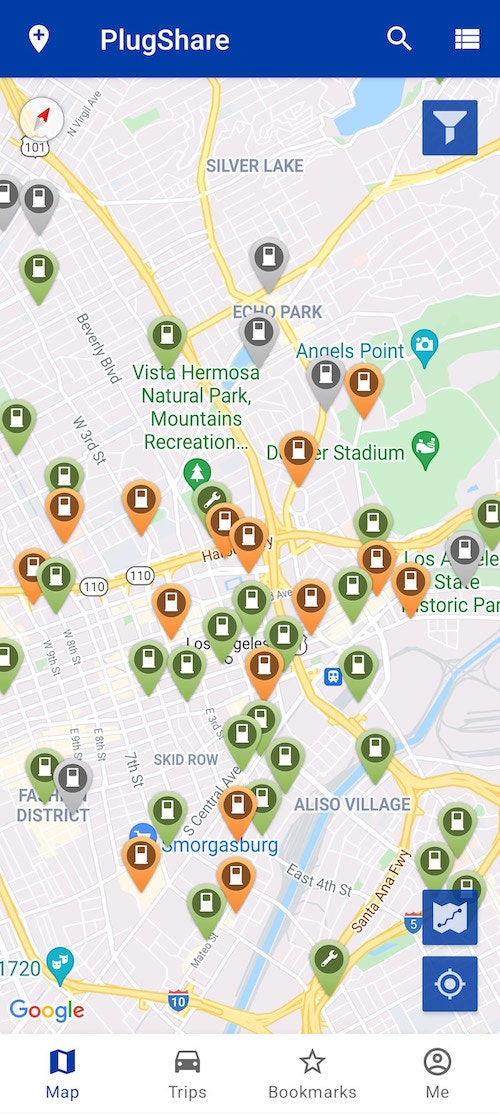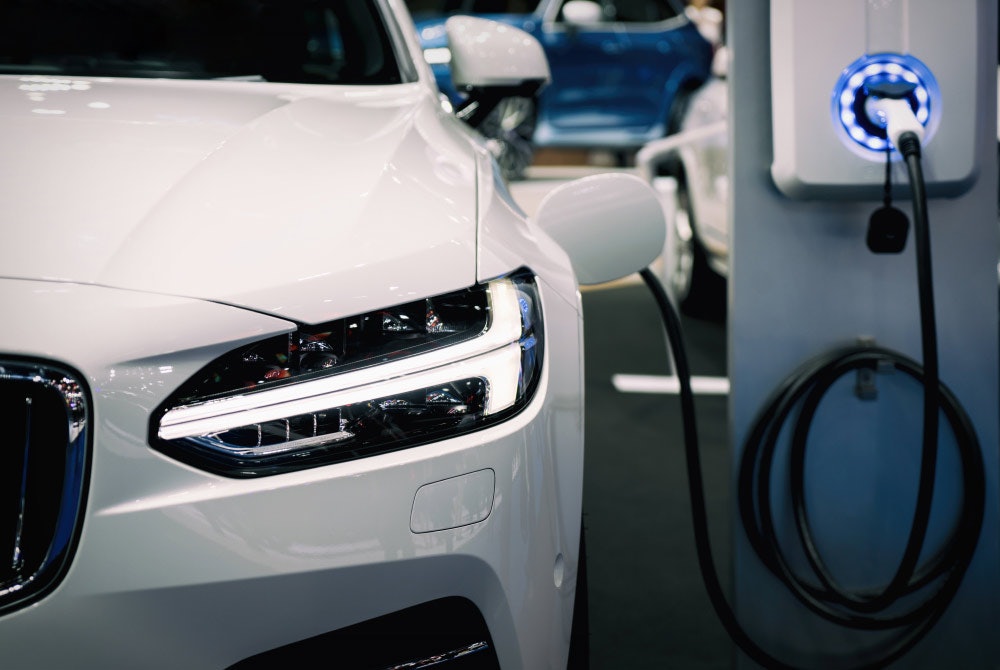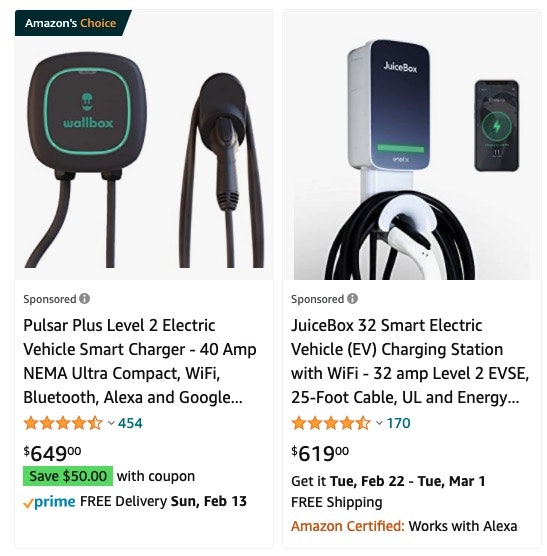- Charging At Home? Get a 240V Charger
- Not all Public Chargers Are Fast Chargers
- You Might Get Further Than You Think
- If Your Battery Dies, You'll Need a Tow
- You'll Still Need Regular Services (But It'll Be Cheaper)
- Frequently Asked Questions
When shopping for a new electric vehicle (EV), the two main things you are likely paying attention to are:
- The price of the car
- How much mileage you'll get on a full charge
However, there are some other things that you may not know about electric vehicles that may help you make your final decision and figure out if it's worth it.
Charging At Home? Get a 240V Charger
Many people choose to get an electric vehicle not just to save money on gas but for the convenience of charging your car at home. However, it's not worth it unless you have a level 2 (240V) charging station.
Charging Levels
Before we get into why charging at home may not be worth it for you, you need to understand the different charging levels for EVs.
- Level 1: Slowest charging option via a regular household 120V outlet.
- Level 2: 240V charging—faster than Level 1.
- Level 3: DC fast charging found only at public charging stations (fastest charging option).
| Charger | Voltage | Output (kW) | Charge/Hour |
| Level 1 | 120 | 1.3-2.4 | 3-5 miles |
| Level 2 | 208/240 | 3-19 | 18-28 miles |
| Level 3 | 480 | Up to 350 | 180+ miles |
The speed at which your EV charges will depend on the make and model—electric vehicles have different charging capacities.
Level 1 Charging (Why It's Not Ideal)
It's probably going to take a whole day to charge your car (for a full EV) from a regular 120V outlet. When you think about how much that will cost in electricity, it's not worth it. Additionally, who has time to wait 24 hours to charge a car? It's definitely not convenient.
Why a Level 2 Charger Isn't Always Doable
You may be thinking, "No worries, I'll just get a Level 2 charger." But unfortunately, while this may be doable for some, it might not be for your situation.
First, the Level 2 charging station that you'll need to install will set you back a few hundred dollars. A portable level 2 charging cable will cost around $200, while wall charging stations usually start from about $500.
Secondly, the cost of the Level 2 charging station isn't all you'll need to worry about. Most homes don't have a 240V outlet since the U.S. standard outlet is 120V. You'll need to get an electrician to install the 240V outlet so you can plug the charging station in. This can set you back another several hundred dollars.

- Thousands of brands, millions of products
- Free shipping on millions of items
- Free One-Day delivery with Amazon Prime, available coast to coast
If you plan on keeping an EV for a while, then it's worth it. But if you're just testing out whether an EV vehicle is for you, you may not want to invest in installing a car charger if you're not sold on electric.
Additionally, installing a Level 2 EV charger usually isn't an option for those who rent, live in an apartment or condo, or don't have a garage.
Not all Public Chargers Are Fast Chargers
Before buying an electric vehicle, it's wise to check out how many public charging stations there are in your area. The last thing you want is to run out of battery while on your way home from work.
Use an App to Find Fast Chargers
Popular apps, like PlugShare and EVGo, show you all of the EV chargers installed in your area. You can filter by power level and stations that aren't in use, so you can find just the fast, Level 3 chargers that are available.
One thing you may not realize until it's too late is that not all EV charging stations are fast chargers. Many of the charging stations that you see are Level 2. These are faster than charging at home on a regular 120V outlet but will still take a good 5+ hours (depending on your car) to charge your vehicle fully.

If you just need a quick boost, you'll generally need to plug it in for about an hour to get 25 miles of charge (this varies depending on the make and model of your EV). If you're going on a road trip, this isn't ideal—you can't just recharge fully while stopping for lunch.
Limits on Public Charging Stations
Most charging stations limit you to a maximum number of hours you can be plugged into an EV charging station. Generally, you're limited to:
- Level 2 charging stations: 2-4 hours
- Level 3 charging stations: 1-2 hours
Additionally, if you remain plugged in even after your battery is full or past the maximum allowed time, some chargers will continue to charge you a fee. So you're not just paying for the electricity you've used—you're paying to park in the spot and be plugged in.
Some Charging Stations Are Free
Although not super common, you may be able to find some free charging stations in your area. More common places to find them are in parking lots of healthy grocery stores, like, Whole Foods or Lazy Acres.
You Might Get Further Than You Think
Electric cars will come with the equivalent of miles per gallon (MPG) that they will get you—this is known as miles per gallon equivalent (MPGe). However, depending on your driving habits and where you drive, you may be able to get more miles out of a single charge than the MPGe gives.
This is because electric vehicles use regenerative braking technology, which means your battery starts charging whenever you brake. In addition, some EVs now will apply (slight) automatic braking whenever you lift your foot off the accelerator to maximize charging.
You'll get the most out of regenerative braking when you:
- Drive downhill
- Need to stop regularly
- Are coasting at a consistent speed (not needing to accelerate)
If Your Battery Dies, You'll Need a Tow
When you run out of gas in a regular car, you can usually call roadside assistance, and they'll bring you fuel—no need to wait for a tow truck to get you to the closest gas station.
Unfortunately, with an electric vehicle, the only option is to get towed to the closest charging station when your battery is dead. Unfortunately, we don't yet have portable battery chargers for cars, so there's no other option.
You'll Still Need Regular Services (But It'll Be Cheaper)
Just because your car is electric, it doesn't mean you don't need to take it in for a service. You still need to take your vehicle in for regular servicing and tire rotations. However, you won't need to take it in as often, and the service may end up being cheaper because there's less to maintain.
For example, EVs don't need oil changes, while gas cars should get an oil change every 3,000 miles (or every 6 months).
Cost of Car Maintenance Compared
| Type of Vehicle | Cost of Maintenance & Repair (Lifetime) | Cost per Mile (Average) |
| Electric Car | $4,600 | $0.031 |
| Plug-In Hybrid | $4,600 | $0.030 |
| Gas Car | $9,200 | $0.061 |












Comments